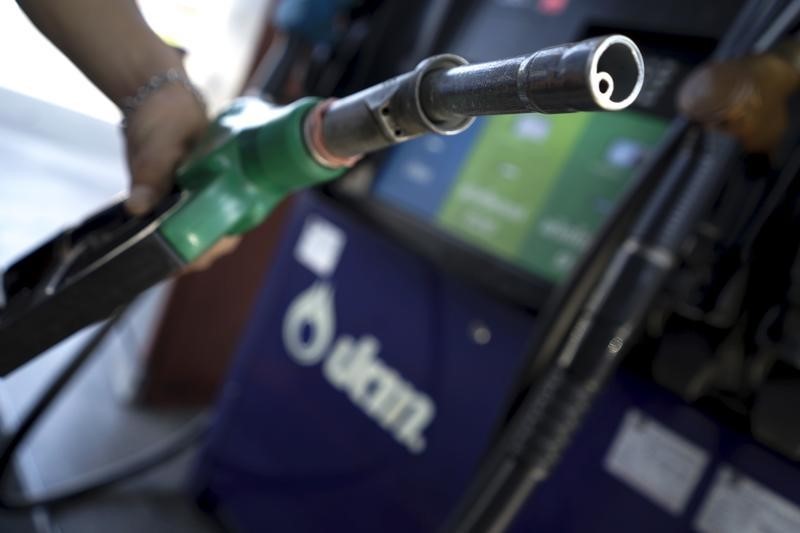TSX jumps amid Fed rate cut hopes, ongoing U.S. government shutdown
By Barani Krishnan
Investing.com – Oil prices hit one-month highs on Thursday ahead of supportive data showing a smaller weekly build in U.S. crude inventories than thought.
But the market came off its highs as stocks on Wall Street, typically a proxy for business confidence, tumbled on fresh fears about global contagion from the coronavirus. The retreat in crude prices also came despite global oil supplies remaining under threat from an exports blockade in Libya, Africa’s largest crude producer.
West Texas Intermediate, the U.S. crude benchmark, rose by 56 cents, or 1.1%, to $54.05 per barrel by 1:08 PM ET (18:08 GMT) after earlier reaching $54.63, a high since Jan. 19.
Brent, the global benchmark for crude, was up 46 cents, or 0.8%, at $59.58 per barrel. Brent stopped just short of the critical $60 resistance mark earlier, reaching $59.99 for a three-week high.
On Wall Street, share prices extended a slump on concerns that the coronavirus’ spread beyond China will take a heavy toll on corporate earnings. Japan reported two deaths and South Korea confirmed its first fatality from the disease, even as China cited a slowdown in new cases. Safe havens benefited from the renewed aversion to risk, with the dollar surging and gold hitting seven-year highs.
Since the pandemic in China came into global focus, analysts have zeroed in on the potential loss of demand in the world’s largest oil-consuming country where whole industries have come to a standstill from a disease that has killed more than 2,000 people and infected close to 75,000.
Investing.com columnist Ellen Wald indicated that analysts were still having trouble quantifying the exact loss of demand in China, despite Wall Street banks estimating it to be in the hundreds of thousands of barrels per day amid a collapse in transportation activity, including flights, in many parts of the country.
“We won’t know how much oil China is importing and whether the coronavirus is impacting oil imports until China’s General Administration of Customs releases the data for February,” Wald said in a column Thursday. “Media organizations such as Reuters and Platts typically report China’s oil imports for the month about a week after the month ends.”
Further restricting Thursday’s oil rally were Russian Energy Minister Alexander Novak’s remarks that he saw no need for OPEC and its allies to bring forward their scheduled March 5-6 meeting to discuss a 600,000 bpd production cut pushed strongly by Saudi Arabia. The OPEC+ alliance, which includes Russia, is unlikely to proceed with the cut without Moscow’s cooperation.
“If we’re talking about the timing of the meeting, there is now a common understanding that it is no longer advisable to bring it forward to an earlier date,” Novak said, Reuters reported.
“The meetings that were scheduled ... in my opinion, should be held within those dates,” he said. “There isn’t anything extraordinary enough to change the date.”
Novak’s remarks were sharply in contrast to the expectations telegraphed by Saudi Energy Minister Prince Abdulaziz bin Salman on Wednesday that the oil market should be viewed in the context of a “house on fire” that needed urgent OPEC intervention due to the coronavirus crisis. The prince had played down the impact of the crisis on oil when the disease first went viral, but seems to have become more concerned about it lately.
In weekly U.S. supply-demand data, the U.S. Energy Information reported that crude stockpiles rose by just 414,000 barrels last week, compared with expectations from analysts for a build of about 2.5 million barrels. It was the fourth-straight weekly build in crude inventories that had added some 15 million barrels to the count.
Gasoline stockpiles fell by almost 2 million barrels, versus an expectation for a draw of 435,000 barrels, the EIA said.
Distillates inventories fell 636,000 barrels, compared with forecasts for a 1.46-million-barrel slide.
